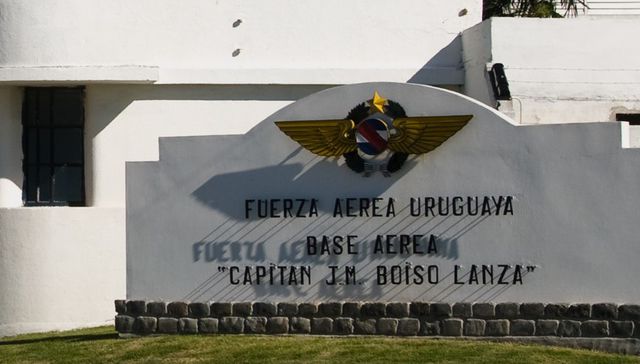RIO DE JANEIRO, BRAZIL – With Armando De León at the helm, the Uruguayan Air Force has been pushing several initiatives since last year, including creating a space agency to synchronize the country with global advances in the field.
The basis is a bill supported by the Ministry of Defense to establish the legal, regulatory, and policy framework for the use of an incipient private activity.
Read also: Check out our coverage on Uruguay
After a global space race marked by millions of dollars of government investment, governments and international agencies have given way to private players. The authorization of the use of low Earth orbit for private companies, where most satellites and human-crewed space flights are sent, has led to a boom in the use of space resources for commercial purposes in recent years.

Rockets carrying satellites are to be launched into space from Uruguayan territory. “There is a niche, and it is essential. Some companies want to come here to launch rockets because it’s a very favorable place for low orbit launches. Nothing manned, but automatic launches,” De León said.
Since Uruguay is far from the equator – proximity to which is the most suitable place to send rockets into space – the private interest lies in orthodromic navigation, which follows the shortest path between two points. “The perfect place for such a launch is Uruguay. There is even a specific area that should be as far east as possible and near water because among the conditions for this type of launch is proximity to water,” said the commander. The area needed is about 37 hectares, which is the size of the Boiso Lanza site.
According to De León, this opportunity is not feasible for Uruguay without its own space agency that can “unite the criteria” of the different public entities currently involved. The draft law was prepared by the Air Force and is in the hands of the Ministry of Defense since it is responsible for this area. Still, the agency has established organizations such as the Ministry of Foreign Affairs, the University of the Republic, and the Technological University.

ARGENTINE SATELLOGIC
The ambitious journey to space initiated by the government relies on fundamental support: Satellogic, an Argentine company dedicated to acquiring satellite imagery, was founded in 2010 and responsible for manufacturing and assembling satellites in Zonamerica since 2015.
The company, which has more than 240 employees and operations in five countries, is valued at US$850 million and was acquired last month by CF Acquisition Corp, an investment fund that will allow the company to begin trading on Nasdaq later this year.
In June, it launched four satellites from the U.S. Cape Canaveral station using a rocket from SpaceX, Elon Musk’s aerospace company. It aims to have a constellation of more than 300 satellites in orbit by 2025.
Satellogic specializes in manufacturing CubeSats, a design standard for nanosatellites that the Air Force plans to use at a future Uruguayan launch station.
Nanosatellites have become far more common than conventional satellites because of their lower cost, smaller size, and shorter manufacturing time. However, they have a higher risk of failure and a shorter lifespan.
They weigh between 1 and 10 kilos compared to more than 1,000 kilos for conventional satellites and have similar missions: Observation and data collection, communications, and geolocation, to name a few. These advantages make it a common first experience for countries like Uruguay that have no experience with space.
“The agency’s goal is to analyze the country’s space projects. The agency provides this technical, economic, and environmental analysis… It provides logistics and, of course, the legal framework. The initial economic costs may not be necessary because it will be an office with many actors. Later, it will incur costs, but if it proves itself, perhaps the private sector will promote or sustain the agency’s activity,” De León said.
The guidelines for creating an Uruguayan Space Agency are contained in the dissertation with which De León graduated this year in Military Aerospace Defense, a degree recognized by the Ministry of Education and Culture and awarded at the Military Aerospace School to train Air Force officers.

In addition to the agency bill, two related decrees have been prepared by the Air Force and are before the President of the Republic.
The first establishes the National Space Board to guide the country’s space policy and lay the groundwork for the agency’s work. Created by representatives of various public agencies, its purpose is to centralize resolutions that today are scattered and, in many cases, reside with Antel and Ursec. For De León, “there is a lack of state policy” in various situations where the country has not determined how to proceed.

